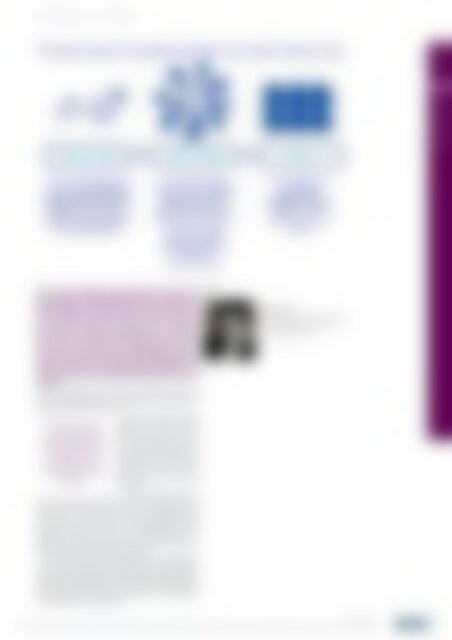atw - International Journal for Nuclear Power | 06.2021
Ever since its first issue in 1956, the atw – International Journal for Nuclear Power has been a publisher of specialist articles, background reports, interviews and news about developments and trends from all important sectors of nuclear energy, nuclear technology and the energy industry. Internationally current and competent, the professional journal atw is a valuable source of information. www.nucmag.com
Ever since its first issue in 1956, the atw – International Journal for Nuclear Power has been a publisher of specialist articles, background reports, interviews and news about developments and trends from all important sectors of nuclear energy, nuclear technology and the energy industry. Internationally current and competent, the professional journal atw is a valuable source of information.
www.nucmag.com
- No tags were found...
Create successful ePaper yourself
Turn your PDF publications into a flip-book with our unique Google optimized e-Paper software.
<strong>atw</strong> Vol. 66 (2021) | Issue 6 ı November<br />
The path towards a European hydrogen eco-system step by step :<br />
Today - 2024 2025 - 2030<br />
2030 -<br />
H 2<br />
INTERVIEW 17<br />
From now to 2024, we will<br />
support the installation of<br />
at least 6GW of renewable<br />
hydrogen electrolysers in<br />
the EU, and the production<br />
of up to 1 million tonnes of<br />
renewable hydrogen.<br />
From 2025 to 2030,<br />
hydrogen needs to become<br />
an intrinsic part of our<br />
integrated energy<br />
system, with at least 40GW<br />
of renewable hydrogen<br />
electrolysers and the<br />
production of up to<br />
10 million tonnes of<br />
renewable<br />
hydrogen in the EU.<br />
From 2030 onwards,<br />
renewable<br />
hydrogen will be<br />
deployed at a large<br />
scale across all<br />
hard-to-decarbonise<br />
sectors.<br />
The most immediate energy project is the Fit <strong>for</strong><br />
55 package on implementing the Green Deal till<br />
2030. Despite the long and short term decarbonization<br />
ambitions of the EU and member states we<br />
see practical policies running in the opposite<br />
direction such as the German phase-out of nuclear<br />
power with insufficient compensation by low carbon<br />
power sources and the new Belgian policy of<br />
replacing nuclear with gas fired power plants. Will<br />
we see some kind of Maastricht mechanism on<br />
climate policy or a European carbon semester in the<br />
future?<br />
I can’t immediately see an appetite within the Commission<br />
– or among EU leaders – to re-open the EU treaties and<br />
redefine Article 194 of the treaty.<br />
Already with the National<br />
<strong>Nuclear</strong> energy<br />
can complement<br />
renewable energy<br />
sources in the<br />
integrated energy<br />
systems.<br />
Energy and Climate Plans<br />
(NECP), which were introduced<br />
in the Clean Energy <strong>for</strong><br />
all Europeans package, the<br />
EU has introduced a level of<br />
transparent <strong>for</strong>ward planning<br />
that has not previously<br />
been seen.<br />
The key point here is<br />
that our absolute priority is to reduce greenhouse gas<br />
emissions by 55% by 2030. And this is being addressed<br />
in the Fit <strong>for</strong> 55 package. The more ambitious targets<br />
proposed <strong>for</strong> the new Directives on Energy Efficiency and<br />
Renewable Energy will require legally-binding commitments<br />
from Member States – and a monitoring process.<br />
But there is no one-size-fits-all approach.<br />
The Commission can also play a role in accompanying<br />
the EU nuclear industry in improving its competitiveness<br />
and better integrating the EU energy system of the future,<br />
by securing the application of the highest safety standards<br />
and supporting the regulatory processes in EU Member<br />
States opting <strong>for</strong> nuclear energy.<br />
Author<br />
Nicolas Wendler<br />
Head of Media Relations and Political Affairs<br />
KernD (Kerntechnik Deutschland e.V.)<br />
nicolas.wendler@kernd.de<br />
Interview<br />
“EU Member States Can Choose Their Energy Sources and Can Include <strong>Nuclear</strong> in Their Energy Mix as Part of Their Ef<strong>for</strong>t to Achieve Decarbonisation and Carbon Neutrality by 2050.” ı Massimo Garribba

















